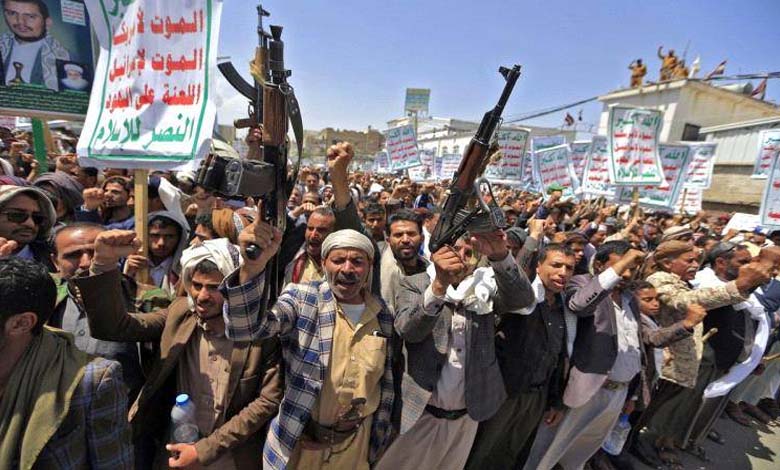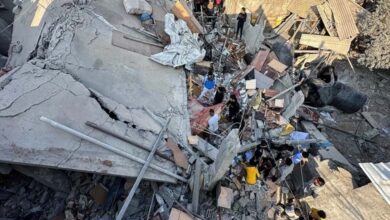Waddah Bin Attia: The International Community Must Exert More Pressure on Houthi Militias

Yemen is experiencing a suffocating economic crisis that worsens daily due to the ongoing war and Houthi practices. As the conflict deepens and threatens the country’s stability, Yemen’s economy has reached a critical state, with a complete halt of the economic cycle looming if these practices continue.
-
“Looting of Property”: A Houthi Official Sets Himself on Fire in Protest
-
A New Deal between the Houthis and Al-Qaeda… Details
The Houthis‘ Impact on Yemen’s Economy
Since the Houthis took control of the capital, Sanaa, in 2014, all economic sectors have been severely impacted. The Houthis, who dominate key regions in northern Yemen, have implemented various economic measures that have paralyzed activities across the country. These include excessive taxation, the closure of ports and airports, and the looting of financial reserves. Their interference in the private sector and control over state institutions have led to a decline in domestic production and eroded trust in the financial system.
-
What Are the Risks of Increasing Cooperation between the Houthis and Somalia’s al-Shabaab? Observers Respond
-
The UN Exposes the “Opportunistic Alliance”: Collaboration between Houthis and Al-Qaeda in Yemen
Stalled Trade and Industry
Yemeni political analyst Waddah Bin Attia stated that one of the main challenges facing Yemen’s economy is the deterioration of trade and industry. This is due to the Houthis‘ restrictions on movement between provinces, their tightening security measures in controlled areas, and the imposition of illegal fees. As a result, trade has significantly declined. Additionally, factories and workshops have ceased operations due to a lack of raw materials and difficulties in accessing local and international markets, leading to massive job losses and rising unemployment rates.
-
A New Plan by the Houthi Militias in Taiz
-
A Deep Crisis Within the Houthi Group Threatens Its Collapse… The Full Story
Collapse of the Local Currency and Rising Prices
He added that one of the most evident signs of Yemen’s worsening economic situation is the continuous collapse of the local currency (the Yemeni rial) against foreign currencies. This collapse has caused unprecedented increases in the prices of basic goods, making life increasingly difficult for citizens. Living conditions have sharply deteriorated due to the loss of purchasing power for many Yemeni families.
-
Arrests and Kidnappings… Houthi Militias Continue Their Crimes
-
Houthis Close Religious Centers That Disagree with Their Doctrine in Three Governorates
The Houthis‘ Practices and Their Impact on Agriculture
He also noted that agriculture, one of Yemen’s economic pillars, has been significantly weakened by Houthi practices. They have imposed taxes on agricultural lands and seized a substantial portion of agricultural output to fund their military activities. The ongoing conflict has also hindered the development of agricultural infrastructure, resulting in reduced harvests and disrupted projects in this vital sector.
Lack of International Support
He highlighted that while the international community has provided humanitarian aid to Yemen, these efforts remain insufficient to meet the needs of the Yemeni people in such dire conditions. The international community acknowledges the Houthis‘ role in paralyzing the economy, but global pressure remains weak in bringing about substantial changes in the group’s economic policies.
-
Houthis and Humanitarian Organization Employees: Information in Exchange for Freedom
-
Suspicious Houthi and Muslim Brotherhood Movements in Yemen’s Shabwah… Details
He continued by stating that the international community must exert more pressure on the Houthis to cease their harmful practices against the national economy. Rebuilding trust in the local financial system and reforming the economy is also essential. Without addressing these challenges, Yemen may witness a complete economic collapse, exacerbating the suffering of a population already enduring one of the world’s worst humanitarian crises.
He concluded by explaining that with the persistence of Houthi practices and their intransigence, Yemen’s economic situation could completely collapse. He called for swift action by all concerned parties to salvage what can still be saved before it is too late.












